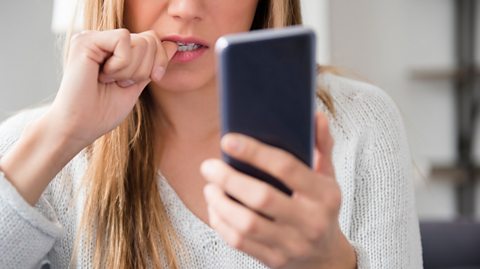If you constantly play with your hair, bite your nails, or follow the same routine each morning, you'll know you're not alone.
We all have habits like these and, sometimes, we donÔÇÖt even realise we have them. It can be hard to pinpoint when and why they crop up, but figuring that out can be quite useful.
Dr Tim Williams, associate professor at the University of Reading, and Prof Thomas Webb, a social psychologist at the University of Sheffield, gave us an insight into where habits come from, and how to get rid of some of the pesky ones.
Making life easier
Both Dr Williams and Prof Webb believe we humans are habitual creatures. Prof Webb says that ÔÇ£without a doubt, every human has a habit of some kind and almost every animal as wellÔÇØ.
Dr Williams believes there are two types of habits. He says the first type is the ÔÇ£unconscious decision makingÔÇØ we make every day, like sticking to a morning routine, or having a certain meal on a specific day. The other is compulsive habits, which are things like hair stroking and nail biting.

But are habits a bad thing? Prof Webb doesnÔÇÖt think so. He believes that 95% of habits are useful and exist to serve our goals. He says ÔÇ£habits are responses to the environment, we have built up over experience and timeÔÇØ.
Dr Williams calls habits aÔÇ£more efficient way of livingÔÇØ. One example is what you eat for dinner on certain days. If you regularly have a roast dinner on Sunday, the decision is made for you out of habit, and you donÔÇÖt have to plan for another meal. Both Dr Williams and Prof Webb believe habits like this, as well as your morning routine or your route to school or work, are useful because they require less thinking, essentially making life easier for us.


Something soothing
Prof Webb defines a habit as ÔÇ£a strong association between a particular cue and a particular response, which is built up over timeÔÇØ. So habits are a response to a signal, and that signal could be anything. For example, most of us will spend some time standing in the bathroom before bed time ÔÇô whether brushing our teeth, washing our face or just generally getting ready for bed. So we may learn to associate standing in the bathroom before bed with cleaning our teeth.
Dr Williams says that hair stroking for example, may be a hangover from peopleÔÇÖs actions as a baby. He suggests that nursing infants might stroke their motherÔÇÖs hair when they donÔÇÖt have their own, as thereÔÇÖs something soothing about it. The need to soothe might be the cue, and stroking hair may be the response. This could continue as they get older with hair stroking developing into a regular habit - obviously stroking their own hair instead of their motherÔÇÖs.

Other cues could be emotions like being bored or anxious, or situations like watching TV or talking to a particular person - it could be anything. The response to these cues could be a number of things that we develop to help us.
But if you want to say goodbye to one of your long-standing habits, it might be quite difficult. Prof Webb says habits can become ingrained and no longer serve your ÔÇÿgoalsÔÇÖ. So if you originally bit your nails when you were anxious, the habit might be so strong that you might now find yourself doing it for other reasons, like being bored.
Time to go?
OK, so most of us will have at least one habit that we dislike and want gone, but how do you get rid of the ones that, as Prof Webb says ÔÇ£no longer serve your purposesÔÇØ? If you were thinking of just saying 'no' and trying to stop the habit outright, that might actually make it worse.

Instead, Prof Webb suggests replacing a bad habit with something else. He says the first step is "to work out what triggers the habitÔÇØ. So if you bite your nails when youÔÇÖre bored, you could try and get a stress ball or another suitable response as a replacement - whatever works for you.
Dr Williams believes that making small changes to your everyday life can help your habits to disappear. He suggests that putting gloves on could help remove some of the compulsive habits like stroking your hair or biting your nails. He found in a study that, if somebody who habitually strokes their hair wears thin gloves, the sensation produced is different, which reduces the need to stroke their hair and the habit can be removed.
If you aren't happy with your routine and want a change, Dr Williams suggests making a change to your environment. One example could be hitting that snooze button on your alarm clock. We've all done it, but if you do it regularly and find yourself being late for things quite a lot, you could try putting the alarm clock on the other side of the room so you have to do something differently to hit the snooze button. The effort involved might be enough to break the habit.
Hiccups: WhatÔÇÖs true and whatÔÇÖs false?
Most of us will get the dreaded ÔÇÿhic hicÔÇÖ at some point. There's lots of myths about them but which of them are actually true?

Can you be addicted to technology?
We spoke to experts about what tech addiction is, and what's being done to help those who suffer from it.

Here's a clue: It's not necessarily Britain
